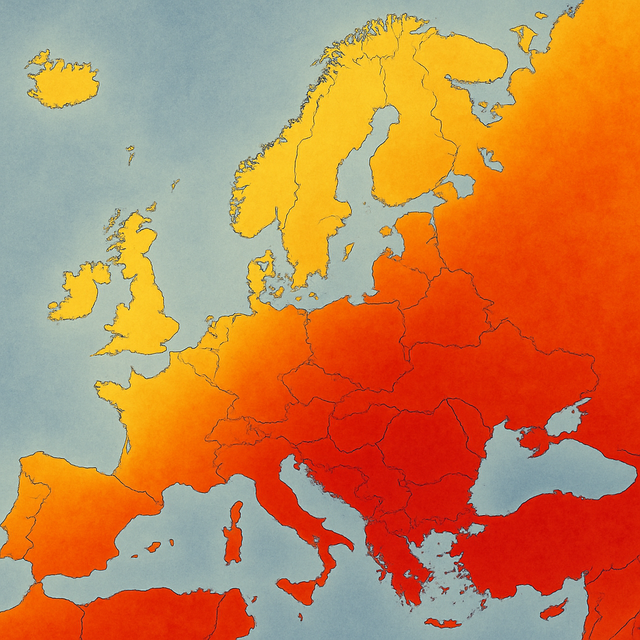
A new heat wave has gripped Southeast Europe, with temperatures reaching 37.6?°C in Albania, breaking local records for June. In Athens, temperatures have topped 40?°C, prompting emergency measures and a shutdown of outdoor work from 09:00 to 14:00. Meteorologists predict that these high temperatures will spread further to the rest of the Balkans, with peaks of up to 40?°C in Serbia and other neighboring countries.
Local records and spread
Albania: Maximum of 37.6?°C in some low-lying areas set the highest record for June in the last decade.
Greece: Athens had to activate cooling centers and close outdoor activities for construction workers and delivery personnel.
Balkans: Serbia is expected to hit 40?°C over the coming days, while the mountainous regions of Montenegro and North Macedonia offer shelter for residents and tourists.
Meteorological causes and the impact of climate change
Persistent heat waves are caused by warm air masses from North Africa rising over Europe and being blocked by a slowing atmospheric circulation. The intensification of these phenomena is closely linked to global warming, which increases the frequency and severity of heat waves across the continent.
Effects on health and infrastructure
Heatstroke: Hospitals in Albania and Greece are reporting an increase in patients with dehydration, extreme fatigue, and heatstroke.
Energy: Consumption increases significantly due to air conditioners, threatening the stability of the electrical grid and increasing billing costs.
Agriculture: Crops in the region face prolonged droughts, endangering local production and food supplies.
Emergency measures in cities
Local authorities have initiated:
1) Public hydration – setting up free water stations and refreshment points in urban centers.
2) Air conditioning centers – opening them to the elderly and more vulnerable residents.
3) Remote work – encouragement for teleworking during peak hours.
4) Time restrictions for builders – ban on activity outside buildings during the midday hours.
Experts' warnings
Meteorologists and epidemiologists predict an increase in incidents of heatstroke and cardiovascular disease, especially among children and the elderly. They urge citizens to plan outdoor activities during the morning or evening hours, stay in shady areas, and follow weather service advisories.
Long-term preparation
In addition to emergency measures, authorities will need to invest in:
Expanding green spaces to reduce urban temperatures
Improving air-conditioned public transport infrastructure
Education campaign for safe behavior during heat waves
This extreme heat wave clearly demonstrates the need for long-term climate change adaptation strategies and civic solidarity to protect public health and the resilience of communities.





